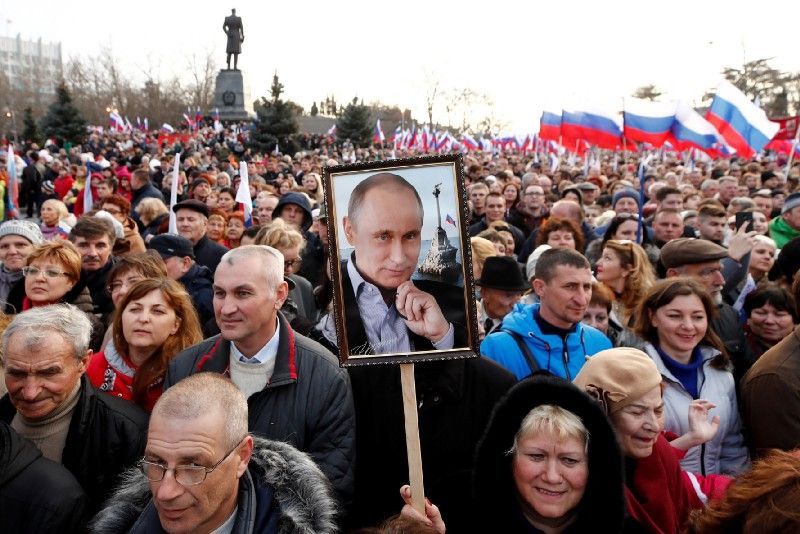This weekend, Russians will re-elect President Vladimir Putin. As Alex Kliment detailed in the Tuesday edition, many Russians are much better off economically than when Putin replaced Boris Yeltsin on December 31, 1999, and Putin has restored the nation’s public dignity in the eyes of many Russians by confidently antagonizing the Western powers.
Look closer. Russians are not simply voting for the Putin we know today but for the distance they believe he has brought them. In 1993, at a time of post-Soviet economic upheaval, your Friday author spent four months in Moscow. Arriving in February, my dollar bought about 500 rubles. Departing in June, I could buy 1,500. For Russians without dollars, the value of cash disintegrated by the week.In those days, the walk out of any large metro station in the capital took you through a gauntlet of people lined up to sell home-grown vegetables, greasy used auto parts, and unopened boxes of diapers. Children wore “for sale” photos of their pets around their necks.
Was it Putin or rising oil prices that ended that time of desperation and loss? To voters, especially those over 40, it doesn’t matter. This is just one aspect of today’s Russian politics, but the broader story becomes less abstract when you see the faces and hear the voices of those who will vote.
Side note: I offer deep respect to family and friends of the great Soviet and Russian actor, director, and teacher Oleg Pavlovich Tabakov, who passed away this week. I spent that time in Moscow at his invitation.
